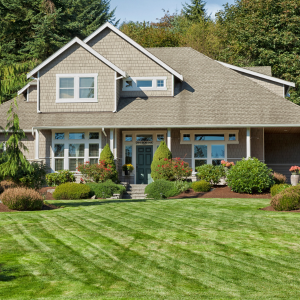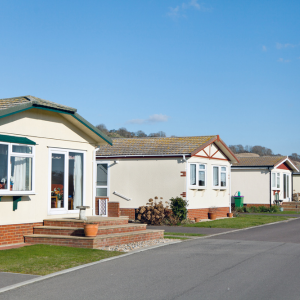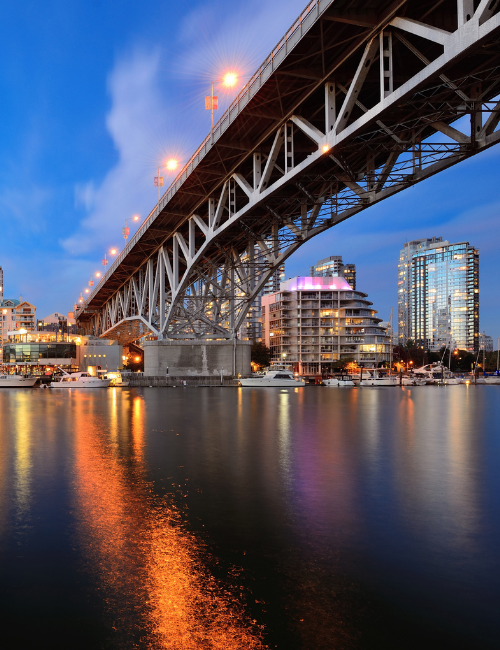
Understanding Vacant Property Laws in Vancouver, Washington
In Vancouver, Washington, compliance regulations apply to property owners of vacant homes to avoid fines. The city considers a property vacant if a residential building has not been occupied for over 60 days and does not have utility services.
The city’s Vacant Property Registration Program stipulates that these properties must be registered to ensure compliance with regulatory guidelines. This involves filling out a form with all involved’s names, addresses, and contacts, paying a fee, and following the complicated application steps.
City officials conduct regular inspections, and property owners are supposed to uphold additional standards. These include controlling landscaping to avoid overgrowth, locking windows and doors, and ensuring the property is not a public hazard or nuisance. Abiding by these standards is the law, and failing to comply may lead to fines or legal issues.
Understanding these laws is crucial for property owners in Vancouver to manage their vacant properties effectively while contributing positively to neighborhood safety and aesthetics.
Legal Requirements for Vacant Homes in Vancouver, Washington
In Vancouver, WA, the legal prerequisites regarding unattended homes that manage societal issues and safeguard the owner’s liability are complex. They require the owner to provide a vacancy registration with a property description and contact details.
Owners are subject to local compliance guidelines, such as excessive lawn care, trash pickup, window and door boarding, securing entrance points, and perimeter fencing. Removing graffiti and other aesthetic issues, like boarding windows over structural damage, can take a long time, which may result in fines or other punitive measures for lethargy.
Additionally, owners must ensure that utilities such as water and electricity are safely disconnected or properly maintained to prevent hazards. Vancouver employs measures to restrict unlawful access with sufficient locking and notification functions where necessary.
These measures seek to alleviate threats like vandalism or squatting while safeguarding the community’s appearance and property values. Such understanding allows owners to stay within the law and create a meaningful community impact.
Risks of Leaving Your Home Unoccupied in Vancouver, Washington
Owners of vacant residential properties in Vancouver, Washington, grapple with different financial burdens and legal risks associated with insurance policies. The abandonment of such properties almost always invites vandalism or theft; the upsurge in these unscrupulous persons seeking to inflict damage or pilfer valuables increases maintenance and restoration costs.
Neglected homes are also more susceptible to neglect of the water and electricity systems, which could cause significant damage if not swiftly resolved. Along with these headaches, local ordinances impose maintenance obligations on landholders, which incur some form of a fine or other punitive measures.
In addition, due to heightened risk, unoccupied properties may be subjected to higher premiums or restricted coverage by insurance companies, making homeowners financially precarious in the event of an incident. Thus, in Vancouver’s residential risk landscape, homeowners must grasp local laws and take preemptive actions to protect and maintain vacant properties to mitigate these risks.
Insurance Considerations for Vacant Properties in Vancouver, Washington

When dealing with vacant properties in Vancouver, Washington, property owners must understand the specific insurance considerations involved. Due to the higher likelihood of criminal activity, such as theft and vandalism, as well as damages caused by a lack of maintenance, insurance companies often regard vacant homes as a greater risk.
In Vancouver, insurance policies are a fundamental measure for avoiding these risks. For owners of empty homes, policies covering vacant properties are likely much better than most standard homeowner policies, which offer coverage for a limited period during an absence or vacancy.
The coverage restrictions necessitate consulting with an agent familiar with regulations and industry practice regarding vacancies in the Pacific Northwest. Evaluating these risks is vital for monitoring water damage during heavy rains or freeze damage during winter, particularly in neglected areas.
Due to the complexity of policy documents, empty houses present a unique problem. Property owners usually have to determine an estimated market value for the property to ensure it is adequately covered, which adds to the complexity. This makes Vancouver, Washington, an interesting case study, as property owners seem to feel covered here. Still, they sustain financial losses due to underinsurance and pay legal liabilities for non-compliance with insurance terms. Property owners in Vancouver are also prohibited from making their policies applicable to insurance compliance, which results in Vancouver lacking protective policies.
Security Measures for Protecting Empty Homes in Vancouver, Washington
In Vancouver, Washington, property owners with unoccupied homes must comply with specific security protocols that help safeguard the house, “Vancouver Compliance”. The city recommends a monitored security system consisting of at least an alarm system and cameras to deter potential trespassers or vandals.
Keeping yards tidy and removing debris can help make a house seem occupied. For this reason, regular upkeep of the home’s exterior is fundamental. Owners can reinforce windows and doors with strong bolts to help prevent break-ins.
Enemies of the property are most likely to commit crimes at night, so lighting the edge of the property is advisable to deter this form of criminal activity. Additionally, specific regulations in Vancouver require proprietors of vacant homes to enroll with the city so that the houses can be maintained in the traditional way expected by community members.
As a result of these measures, the community visually enhances the value of the neglected homes, improving risk management and safety, protecting their investment, and mitigating the dangers arising from homes left unattended.
Strategies to Prevent Vandalism and Theft at Vacant Homes in Vancouver, Washington
In Vancouver, Washington, vacant property owners are urged to adopt preventative vandalism and theft strategies, including regularly monitoring the properties. Vigilant monitoring and installing high-quality door and window locks can also prevent theft.
Security systems with motion detectors and cameras can inform law enforcement or the owner of suspicious activities on the property. Moreover, surveillance cameras serve the purpose of deterring criminals and documenting the crime when it occurs.
Professionally managed landscaping, including regular mowing, tending to the gardens, and managing the accumulation of newspapers and mail, gives the appearance of an occupied home. This minimizes the chances of vandalism or theft. Moreover, spying solicited from community neighbors enhances security around the area.
Property owners might consider hiring professional property management services to conduct regular inspections and address maintenance issues that could signal vacancy. By taking these steps, owners can significantly reduce the risk of vandalism and theft at their vacant properties in Vancouver, Washington.
Seasonal Maintenance Tips for Vacant Houses in Vancouver, Washington
In Vancouver, Washington, maintaining unoccupied houses requires careful attention to seasonal tasks to avoid damage and comply with local regulations. To prevent potential damage, property owners need to check whether the downspouts are guiding the rainwater away from the building’s foundation. Also, performing gutter cleaning during the rainy season is crucial.
Exposed outdoor faucets and pipes prone to freezing should be capped and vigorously insulated. This will allow better safeguarding against the winter’s extreme cold temperatures. A routine heating system checks and guards against moisture problems like mold and helps keep the temperature within a safe range.
Landscaping becomes a focus in spring and summer; cutting grass, trimming overgrown shrubs, and clearing debris improve curb appeal and meet city ordinances regarding maintenance. Another vital aspect is pest control, as vacant properties can invite wildlife or unwanted insects. Closing off access points and performing regular inspections is a reasonable approach.
Property owners should check for missing shingles annually and inspect for leaks to mitigate weather-related damage. Complying with maintenance tasks helps homeowners protect their investments and ensures adherence to Vancouver’s regulations on vacant properties.
Managing Utilities and Services for an Unoccupied Home in Vancouver, Washington

Overseeing utilities and services for an empty house in Vancouver, Washington, requires a strategy to keep the property in good shape and compliant with laws. Property owners must maintain fundamental utilities like water, electricity, and gas, as these services will need maintenance due to potential external damage.
During cold months, checking the heater is essential, as failure to do so might cause frozen pipes, which are expensive to repair. Maintaining functional smoke detectors and security systems is crucial, as they serve both life safety purposes and to meet city compliance regulations.
Vacant homes or properties are more likely to invite safety and security systems. Landscaping services trim and maintain yards to boost curb appeal. All of the above-mentioned leads to enhanced control over Vancouver’s regulatory compliance, provides proper supervision over an investment, and minimize risk threats concerning unoccupied properties.
Preparing Your Home for Extended Absence in Vancouver, Washington
When preparing your home for an extended absence in Vancouver, Washington, it is essential to understand and comply with local regulations regarding vacant properties. Start by focusing on the security of your property; this could include putting solid locks on all doors and windows and even setting up a security system to ward off any possible break-ins.
Also, proper exterior maintenance must be ensured, such as lawn mowing and trimming the shrubs and small bushes. Report your absence to trusted neighbors so they can help monitor your house, which is a good community service promoted by the city.
Setting up mail forwarding or having someone collect it regularly is also advisable to prevent accumulation, which can signal vacancy. Additionally, verify that utilities such as water and electricity are maintained at minimal levels or appropriately shut off to prevent leaks or electrical hazards during your time away.
By understanding these guidelines and taking diligent steps, you can ensure compliance with Vancouver’s vacant home regulations while safeguarding your property during extended absences.
Legal Implications of Long-term Vacancy on Mortgages and Taxes
Understanding the mortgage and tax implications of long-term vacancy in Vancouver, Washington, requires careful insight into property law. As with most regions, property owners need to be aware that mortgages tied to a property receive breach risk if the property remains unoccupied for too long, as most lenders have occupancy clauses.
Vacant properties have always been at risk of vandalism or other destructive acts, which makes them more prone to insurance coverage. Insurance policies for such risks could result in higher premiums or, in some instances, complete cancellation. From a taxation perspective, property owners must be vigilant regarding incorrectly reported occupancy local tax privileges, which would apply when the dwelling is uninhabited for extended periods.
Furthermore, such properties may be assigned increased appraisal and special area urban increments designed to deal with urban blight and stimulate population growth. Property owners seek to balance their investment and adhere to the legal frameworks so as to achieve the social objectives set by municipal authorities, which are geared towards community equilibrium and social health.
Sell With Isaac can guide you through these complexities, helping you make informed decisions and avoid costly oversights.
Finding Reliable Property Management Services in Vancouver, Washington
Finding reliable property management services in Vancouver, Washington, is crucial for property owners navigating the city’s regulations on vacant homes. Property managers are vital in maintaining compliance with local ordinances and ensuring that vacant properties remain secure and well-maintained.
These professionals offer expertise in understanding complex regulations, from routine inspections to handling maintenance issues promptly. In Vancouver, experienced property management companies can assist with securing tenants and addressing code enforcement requirements.
By choosing a knowledgeable and reputable property manager, owners can mitigate risks associated with vacancy, such as vandalism or deteriorating conditions, which could lead to fines or legal action. Additionally, local property managers often have relationships with contractors and service providers, enabling them to manage repairs and upkeep while efficiently keeping costs reasonable.
This partnership helps maintain the property’s value and provides peace of mind for owners who may not reside near their investment properties. Contact us for expert assistance and local solutions to learn how we can support your specific needs.
The Role of Neighborhood Watch Programs for Empty Properties

In Vancouver, Washington, neighborhood watch programs are critical in safeguarding vacant homes by fostering community vigilance and enhancing security measures. These programs bring together residents who actively monitor empty properties for signs of vandalism, trespassing, or other potential threats.
By maintaining open lines of communication with local law enforcement, neighborhood watch participants can swiftly report suspicious activities surrounding vacant homes, thereby deterring criminal behavior. In addition to surveillance efforts, these programs often organize community meetings and workshops to educate property owners about best practices for securing their vacant homes.
Through collaborative efforts, neighborhood watch programs contribute significantly to preserving the integrity of neighborhoods and ensuring that vacant properties do not become targets for illegal activities. Engaging with these initiatives helps protect individual investments and promotes Vancouver’s safer and more cohesive community environment.
Impact of Vacancy on Home Value in the Vancouver, Washington Real Estate Market
In the Vancouver, Washington real estate market, the impact of vacancy on home value is a critical consideration for property owners. Vacant homes often face challenges such as depreciation and increased maintenance costs, significantly affecting their market value.
When a property remains unoccupied for an extended period, it may become susceptible to vandalism or neglect, diminishing its appeal and worth. Additionally, vacant homes can alter neighborhood dynamics by deterring potential buyers, including cash house buyers in Washington, and affecting the area’s perceived desirability.
This can lead to a downward pressure on local property values as demand decreases. The regulations in Vancouver aim to mitigate these effects by encouraging property owners to maintain vacant properties properly and to take proactive steps towards occupancy.
By understanding these regulations and their implications on vacant homes, owners can better navigate the complexities of retaining or improving their property’s value within this competitive real estate landscape.
Community Resources Available for Owners of Vacant Homes
Property owners in Vancouver, Washington, who own vacant homes can take advantage of various community resources designed to assist them in maintaining and managing their homes. The city offers informational workshops and seminars that provide valuable insights into local regulations concerning vacant homes, helping owners understand their responsibilities.
Additionally, the Vancouver Housing Authority guides how to keep properties compliant with safety and aesthetic standards. For those looking to maintain curb appeal, local landscaping services offer discounted rates for vacant property upkeep.
Furthermore, neighborhood associations often collaborate with property owners to ensure that vacant homes do not become eyesores or targets for vandalism. These organizations may also facilitate connections with local contractors specializing in repairs or renovations necessary to meet city codes.
By utilizing these community resources, property owners can effectively manage their vacant properties while contributing positively to the neighborhood’s overall well-being.
How Long Will Property Be Abandoned in Washington?
In Vancouver, Washington, understanding when a property is considered abandoned is crucial for property owners to avoid potential legal issues and fines. According to state regulations, a property may be deemed abandoned if it remains vacant and neglected for an extended period without any visible maintenance or signs of occupancy.
Local ordinances typically dictate specific timeframes and conditions under which a home is classified as abandoned; however, in many jurisdictions within Washington, a property can be considered abandoned after being unoccupied for 60 days or more without active engagement from the owner. During this period, property owners must maintain regular upkeep to prevent their homes from being labeled abandoned.
This includes maintaining the exterior appearance, addressing safety hazards, and ensuring compliance with local codes. Failing to do so may lead to enforcement actions by city officials or neighborhood associations to prevent urban blight and maintain community standards.
Understanding these timelines and requirements helps property owners in Vancouver manage their residential properties effectively while avoiding the complications associated with abandonment designations.
How Long Can a House Sit Abandoned?
Understanding the regulations regarding how long a house can sit abandoned is crucial for property owners in Vancouver, Washington. The city enforces specific guidelines to manage vacant homes and maintain community safety and aesthetic standards.
Generally, a property may be considered abandoned if it remains unoccupied for an extended period without proper maintenance or oversight. Vancouver’s regulations require property owners to register their vacant homes with the city’s Vacant Property Registration Program after being empty for 90 days.
This program helps the city monitor such properties and encourages owners to maintain them appropriately. Failure to comply with these regulations can result in fines and additional penalties. Otherwise, the property can be sold to investor home buyers in Vancouver and other cities in Washington to avoid ongoing liabilities and maintenance burdens.
Therefore, property owners in Vancouver need to familiarize themselves with these rules to avoid legal issues and contribute positively to their neighborhoods. Adhering to local guidelines allows owners to manage their vacant properties effectively while supporting community efforts to minimize blight and enhance neighborhood appeal.
How Much Is the Empty Homes Tax in Vancouver?
In Vancouver, Washington, the regulations surrounding the empty homes tax are designed to encourage property owners to utilize their vacant properties efficiently and help alleviate housing shortages. The empty homes tax, often called a vacancy tax, is a levy imposed on residential properties that remain unoccupied for an extended period.
As of the latest guidelines, property owners in Vancouver may be subject to this tax if their homes remain vacant for more than six months within a calendar year. This regulation incentivizes owners to rent or occupy unused residential spaces.
While the empty homes tax rate can vary based on specific municipal policies, it typically represents a percentage of the property’s assessed value. Property owners should stay informed about these rates, which can directly impact financial planning and property management strategies.
Understanding Vancouver’s regulations is crucial for ensuring compliance and avoiding potential penalties for leaving homes vacant without proper justification or exemption.
Can I Leave My House Vacant?
Certainly! In Vancouver, Washington, leaving a house vacant comes with specific regulations that property owners must understand to ensure compliance and avoid potential penalties. As a property owner, you can leave your home vacant; however, the city has established guidelines to maintain neighborhood safety and aesthetic standards.
According to local ordinances, vacant homes must be adequately secured and maintained. This includes ensuring that windows and doors are intact, well-kept landscaping is present, and no signs of neglect or vandalism are present.
Property owners must also register vacant properties with the city through the Vacant Property Registration program. This registration helps the city monitor vacant homes and address any issues promptly.
Additionally, regular inspections may be mandated to verify that the property remains in good condition. Property owners who adhere to these regulations can prevent legal issues while contributing positively to their community’s well-being.
Understanding these requirements is essential for anyone considering leaving their home unoccupied in Vancouver, Washington.
Need to sell your home? Sell fast to avoid costly repairs or hassles. Help is available from Sell With Isaac. We make fair cash offers, handle all details, and streamline the process. Want to sell or have questions? A no-obligation quote is available at (360) 207-4133. Get started now!
| CITY OF VANCOUVER | REVENUES | HOUSING AFFORDABILITY | AFFORDABLE HOUSING | BUILDING CODES | GARBAGE |
| TRASH | AUDIT | CITY OF VANCOUVER | ATTORNEY | LEGAL COUNSEL | HEALTH |
| POLICY | MUNICIPALITIES | FISCAL YEAR | VEGETATION | AMERICAN | RIGHT-OF-WAY |
| RIGHT OF WAY | PROPERTY TAX | PRICES | LIABILITY | CONDOS |
Helpful Vancouver Blog Articles
- Home Equity For Selling Your House In Vancouver, WA
- Selling Your House As-is In Vancouver, WA
- Who Covers Closing Costs When Selling a Home in Vancouver, WA?
- Are Open Houses Effective for Selling Your Home in Vancouver, WA?
- Homeowners Insurance When Selling Your House In Vancouver, WA
- Vancouver, Washington’s Regulations On Vacant Homes
- Short Sell Your Home In Vancouver, WA
- Selling Your Home Below Appraised Value in Vancouver, WA
- Do You Need a Lawyer to Sell Your House in Vancouver, WA?
- Impact Of Selling Your Vancouver, WA, Home As-is
- Forced Sale Of A Home During Divorce In Vancouver, WA
- Guide To Changing The Executor Of Your Will In Vancouver, WA
- Selling A Portion Of Your House In Vancouver, WA

